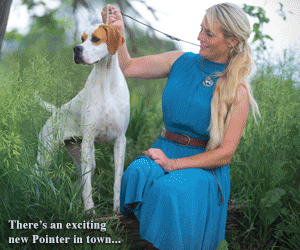Talking to Judges – The Right Way to Talk to a Judge
270 – February, 2018
By Peri Norman
 The Salmon Run Cluster in Oregon hosted several seminars and a round table discussion as a part of the Pure Dog Talk University. This was a wonderful event! Much spirited discussion took place among the various groups of the dog fancy. One recurring theme in the conversations was the importance of senior members of the sport sharing their accumulated knowledge with newer participants. Experienced dog folk wear many, and sometimes multiple, hats! Breeders, trainers, long-time exhibitors, photographers, American Kennel Club Field Reps, show chairs and professional handlers make up much of this pool of knowledgeable resources. It is clear that our sport is aging and new participants need to be both encouraged and educated. An “all hands on deck” attitude by more experi- enced dog people needs to be pervasive across multiple areas of expertise.
The Salmon Run Cluster in Oregon hosted several seminars and a round table discussion as a part of the Pure Dog Talk University. This was a wonderful event! Much spirited discussion took place among the various groups of the dog fancy. One recurring theme in the conversations was the importance of senior members of the sport sharing their accumulated knowledge with newer participants. Experienced dog folk wear many, and sometimes multiple, hats! Breeders, trainers, long-time exhibitors, photographers, American Kennel Club Field Reps, show chairs and professional handlers make up much of this pool of knowledgeable resources. It is clear that our sport is aging and new participants need to be both encouraged and educated. An “all hands on deck” attitude by more experi- enced dog people needs to be pervasive across multiple areas of expertise.
While mentors and coaches from a range of perspectives are ideal and usually achievable, the one group that seems to create the most consternation and discussion are the judges. The vast majority of judges have earned their stripes in various other roles. Years of dedication to training, breed- ing, exhibiting and just living with purebred dogs has given them a depth of knowledge that goes beyond the written standard and encompasses both the history and function of various breeds. Yet, communication between exhibitors and judges seems to be fraught with anxiety on both sides. A thoughtful and respectful approach can smooth the way to a useful and enlightening discussion.
Any exhibitor needs to carefully consider their motivation for initiating a conversation. Imagine if Fred’s dog just beat your Precious Mopsie for the tenth time in a row. How that awful dog with the incorrect tail carriage keeps winning over Mopsie is beyond comprehension. Before you approach any judge, the standard needs to have been studied regularly and thoroughly. An effort to itemize Mopsie’s strengths and weakness based on the written words may be enlightening. In all fairness, you most certainly should be able to articulate the areas where Fred’s dog is indeed closer to the standard than Mopsie. Respected breed specific books and the national club website provide framework and explanation to the requirements of the standard. Your breeder and/or trusted mentors can help with an accurate evaluation of Mopsie relative to the current competition in the breed. While judges can guide you toward specific information, first be sure that you have a working knowledge of the breed standard, history and function. It is not the judge’s job to educate you about the basics of your breed. Their job is to evaluate your entry against the standard and the other entries in the ring. Anything beyond that is a gift, not an entitlement.
Click here to read the complete article270 – February, 2018
Short URL: https://caninechronicle.com/?p=139159
Comments are closed











